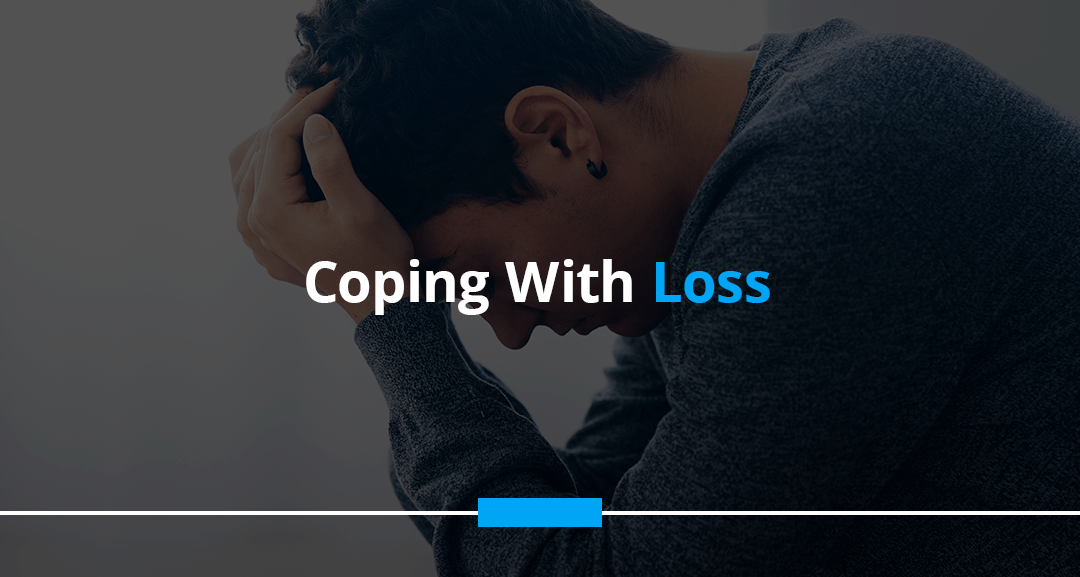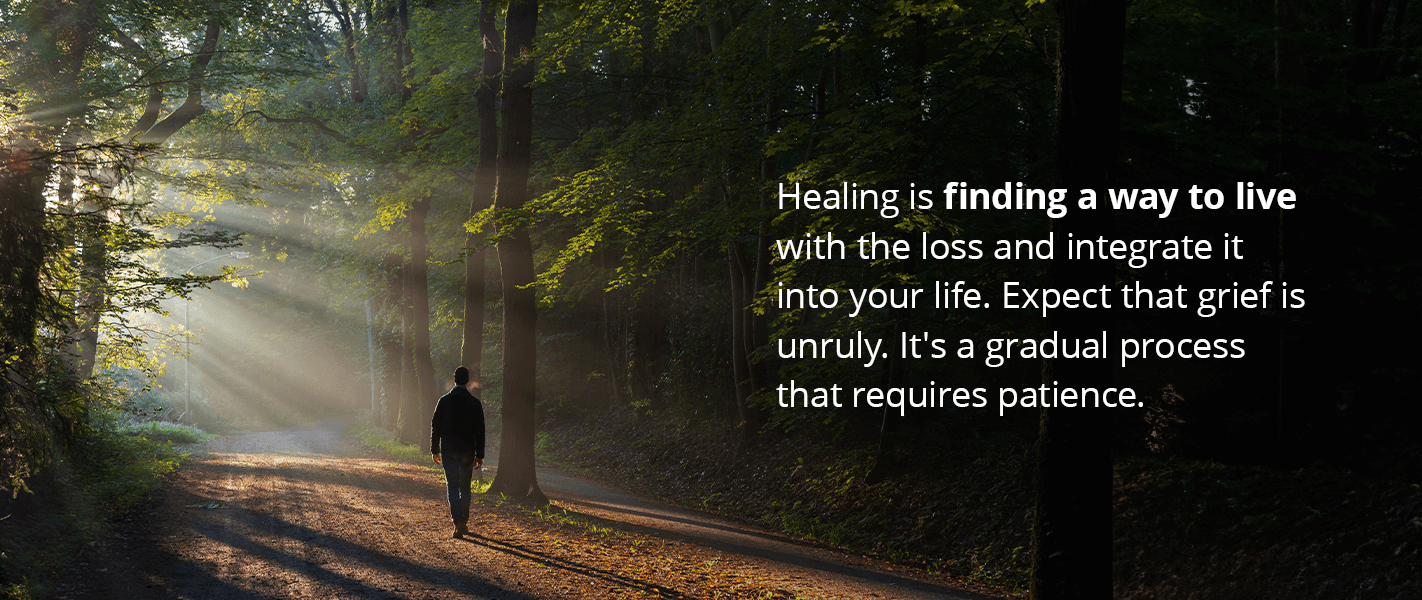Embrace the Emotions
When loss touches our lives, it brings a spectrum of emotions. Coping with grief can include anger, guilt, confusion and even happy emotions like relief or joy. Let’s be clear — there is no “correct” way to feel. Your feelings are your own and an honest reflection of your unique relationship with what you have lost and the changes that you now face.
Your experiences and moods do not follow a schedule, and they can come at an unexpected time in unexpected ways. Give yourself permission to experience them as they arise. Be gentle with yourself while you find ways to deal with loss. You may find yourself questioning your emotions or feeling guilty about not grieving in a certain way. Self-compassion allows you to heal at your own pace and in your style.
Things that might help you during this time are to journal your emotions. Talking to friends or making an appointment with a therapist will allow you to let it all out. Experiment with different activities and strategies to find what works for your own healing journey.
Creating a Support System
Your loved ones and others who care about you can assist during this challenging time. Utilize a support system in the following ways to cope when a loved one dies:
- Lean on family and friends: Your immediate circle of family and friends can be a source of comfort like no other. Your support system doesn’t need to be a large group to be effective. It could be a couple of close friends or family members who understand your situation or who are experiencing the same loss.
- Accept help: Accepting help is not a burden to your inner circle. They want to show their love and care for you. Allow them to support you in any way they can. One day, these very people might need you to do the same for them.
- Support groups: Support might come from unexpected places. We always consider friends and family, but a community or counseling service might suit you better. People who have experienced grief or similar situations will relate to you more than a close friend who hasn’t.
How to Cope with Loss
Healing is finding a way to live with the loss and integrate it into your life. Expect that grief is unruly. It’s a gradual process that requires patience. Friends and family might suggest you “move on,” but this doesn’t mean leaving something behind. It is about moving forward with that memory continuing to grow. Your life has irreversibly changed, and it will take time to adjust to the “new” normal. Your routine will change and so will your interests and priorities.
Carry the legacy forward and find ways to celebrate your loved one. Being positive and keeping the joy alive will weave their essence into the fabric of everyday life, even in their absence.
Take the time to reflect on their achievements, kindness and the moments that made them unique. Here are a few ways you can keep their memory active in your life:
- Create a tribute: This can be as public or private as you feel comfortable. Some ideas to get you going are to plant a tree or dedicate a bench in their favorite spot.
- Speak their name: Sometimes, connecting with others who have experienced a similar loss can be comforting. Sharing stories can be a way to honor them while finding common ground with others.
- Establish a tradition: Start a tradition that celebrates them on a special day, such as their birthday or maybe an anniversary. You could make their favorite meal, dance like they used to or visit a special place. Some find comfort in simply lighting a candle.
- Live out their value: Carry forward a cause or passion that your loved one held dear. If they were committed to volunteer work, then donate towards it. If they were a teacher, you could start a scholarship.
Seeking Professional Help
While the support of friends and family is invaluable, there are times when seeking professional help becomes a crucial part of coping with the loss of a loved one. Professional therapists can provide guidance and strategies for you to process your grief within a safe space. Three effective types of therapy are Cognitive Behavioral Therapy (CBT), Dialectical Behavior Therapy (DBT) and Person-Centered Therapy.
Cognitive Behavioral Therapy (CBT)
CBT focuses on finding negative thought patterns and behaviors. You can expect the following in your sessions:
- Recognize and reframe negative thought patterns: Loss often brings feelings of guilt, blame and self-criticism. CBT can help you identify these thoughts and replace them with healthier and more realistic perspectives.
- Coping with overwhelming emotions: This approach provides tools and techniques to manage intense emotions to help you regain a sense of control during the process.
Dialectical Behavior Therapy (DBT)
DBT is a form of cognitive-behavioral therapy focusing on regulating emotions and building interpersonal skills, and it can be helpful for individuals dealing with intense and complicated feelings in the aftermath of loss. DBT can help you:
- Develop emotional regulation skills: You can often feel overcome with emotions — DBT equips you with the tools to manage them effectively.
- Improve interpersonal relationships: DBT teaches communication skills for navigating the challenges in relationships with family and friends.
Person-Centered Therapy
Person-centered therapy focuses on the importance of the therapeutic relationship and the client’s self-actualization. This approach lets you:
- Express your feelings without judgment: The therapy provides a safe and non-judgmental environment to explore your emotions.
- Grieve at your own pace: The therapist allows you to lead the discussion, making it easier to process in your unique way and time.
- Gain self-awareness and insight: This therapy fosters self-discovery and is a powerful tool for healing and personal growth.
Reaching Out to Merrimack Psychological Associates
Remember, you don’t have to navigate this journey alone. Support is available, and seeking professional help can be healing. Merrimack Valley Psychological Associates is here to provide the compassionate and professional support you need on your journey toward healing. Our experienced team of therapists can help you process your grief and find the strength to move forward — reach out for more information or to schedule your first appointment.



